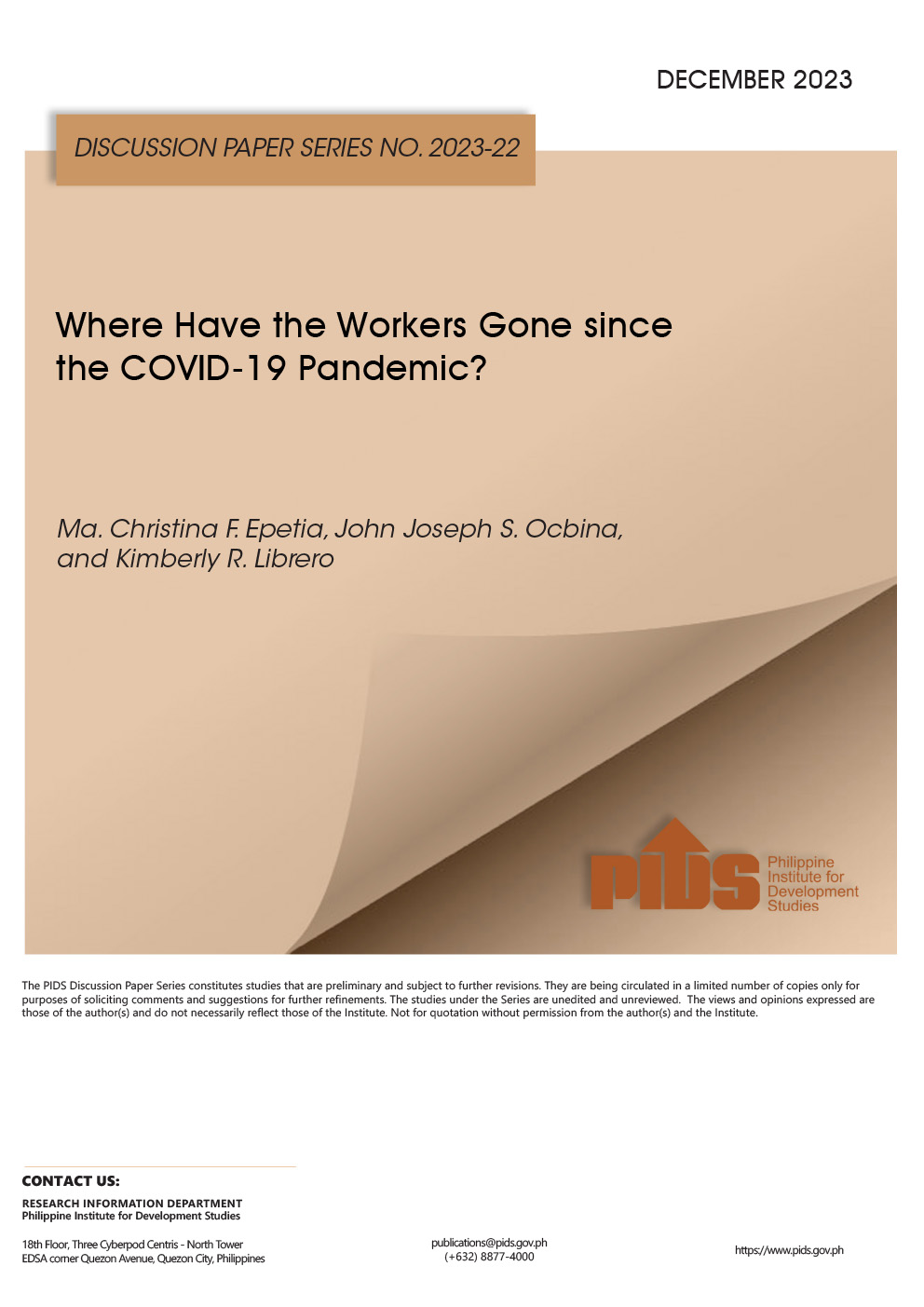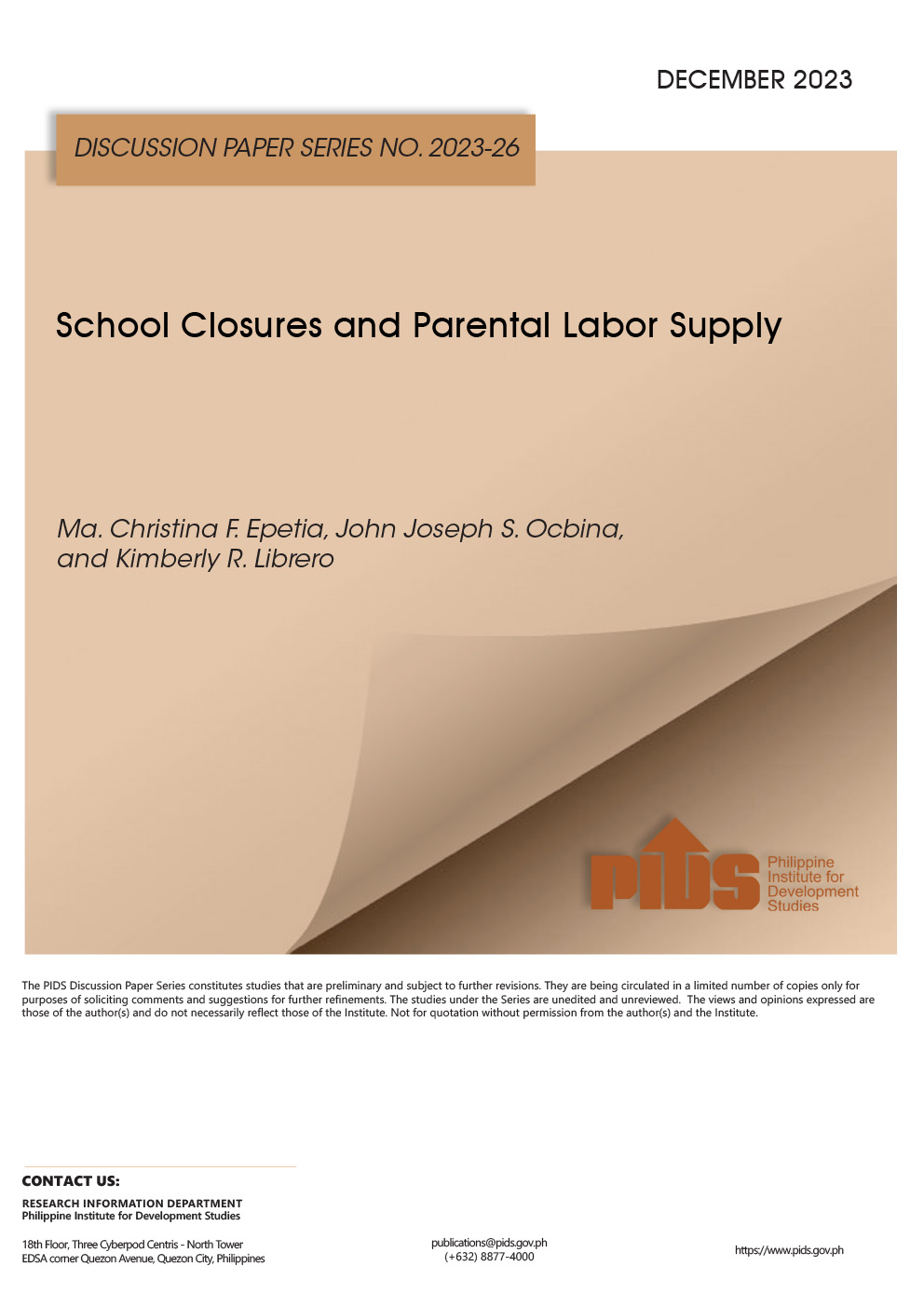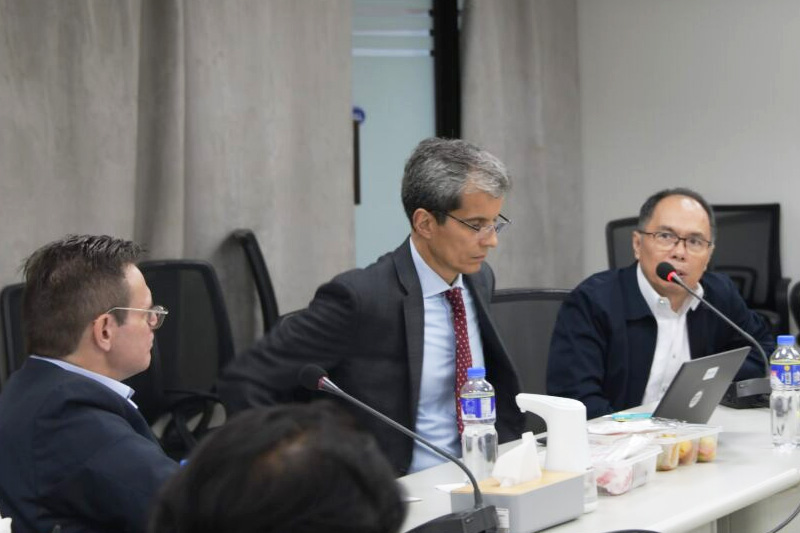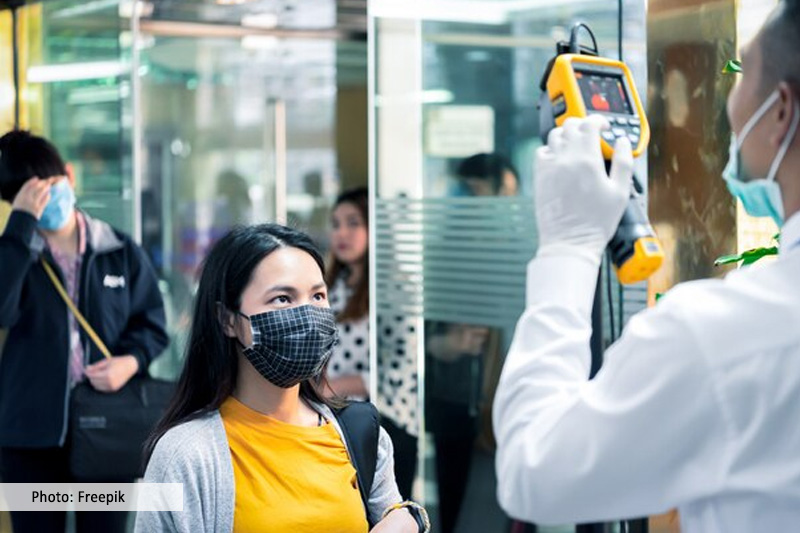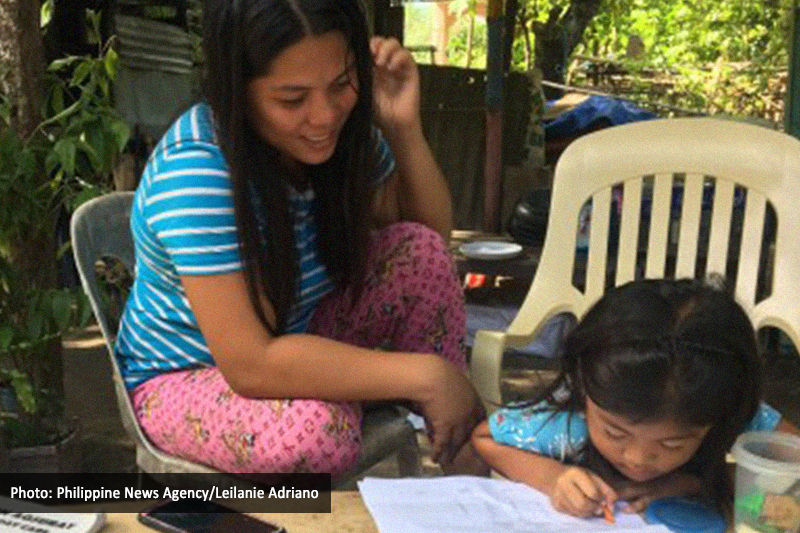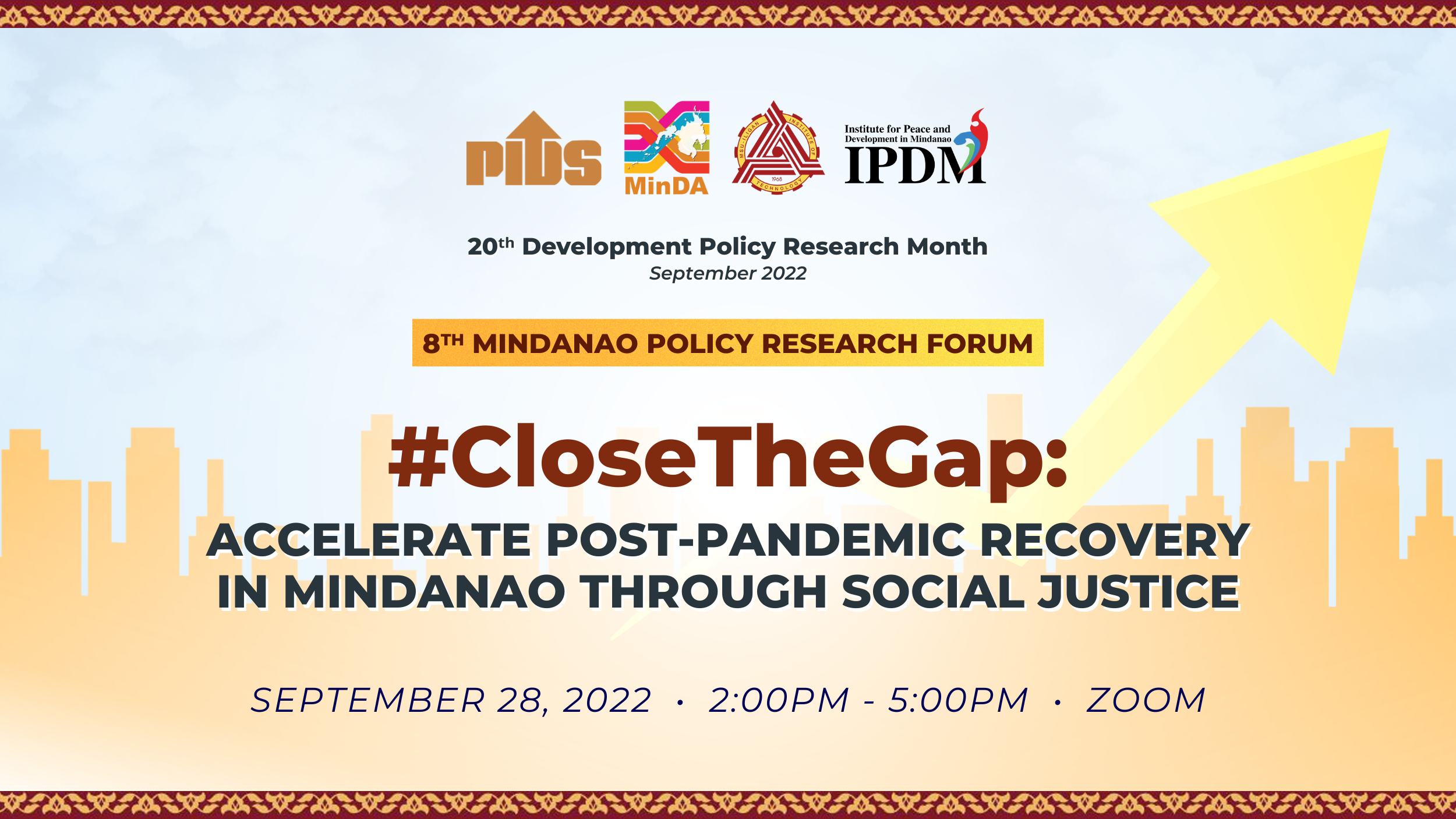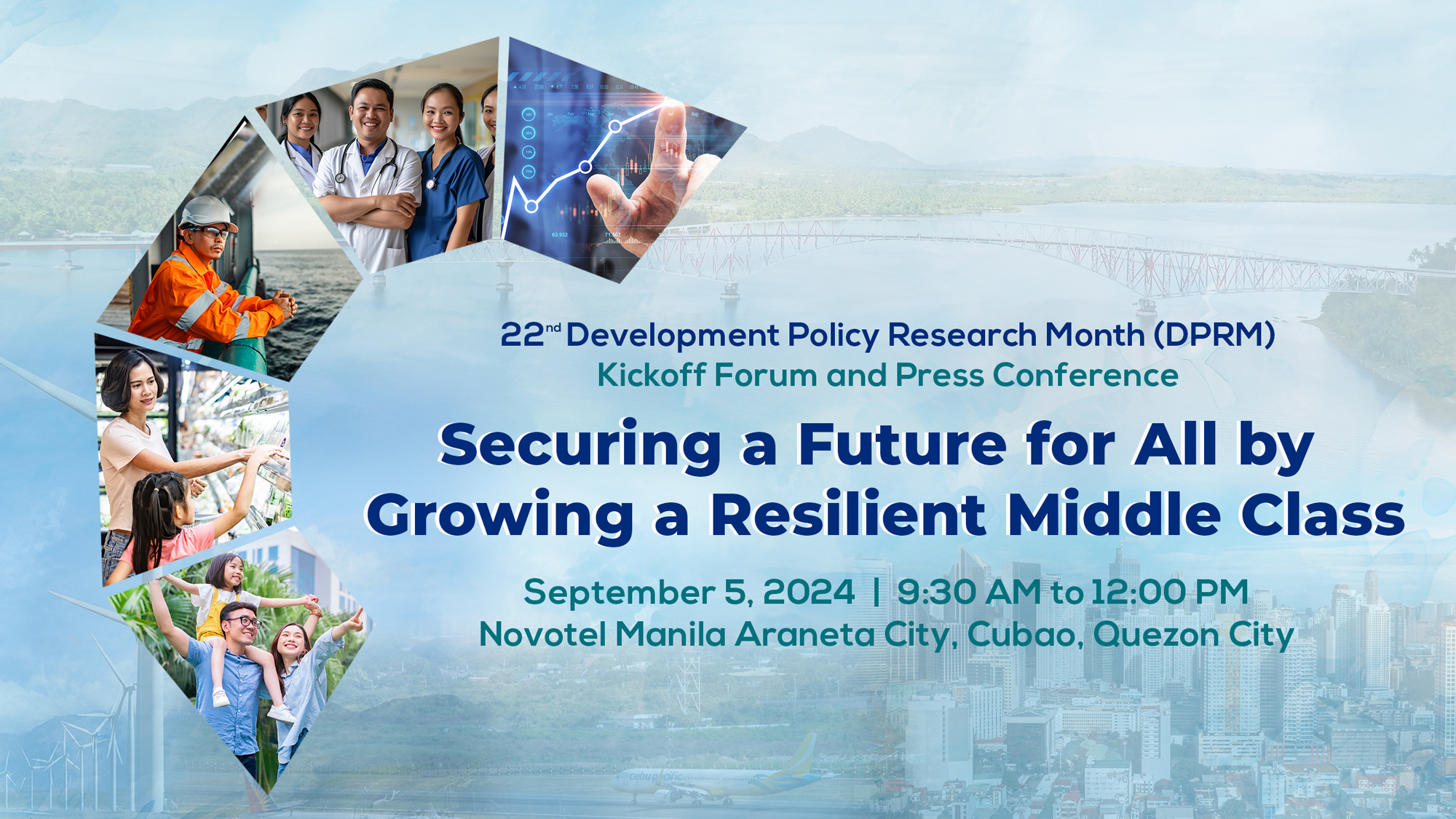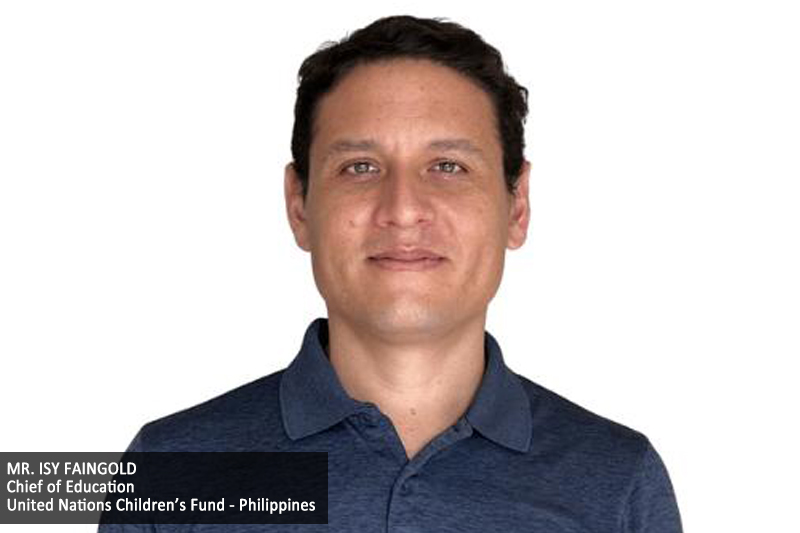
The Philippines must recover learning losses from the COVID-19 pandemic and other disasters that hit the country.
Isy Faingold, chief of education at the United Nations Children’s Fund (UNICEF) in the Philippines, underscored this during the second webinar of the 8th Annual Public Policy Conference (APPC) organized by the Philippine Institute for Development Studies (PIDS) and supported by the Bangko Sentral ng Pilipinas.
Faingold said that the Philippines was already facing a learning crisis before the pandemic. For instance, the results of the Southeast Asia Primary Learning Metrics in 2019, a regional learning assessment designed by and for Southeast Asian countries, revealed that only 10 percent of Grade 5 students in the Philippines met the minimum required standards in reading and only 17 percent in math.
He said these figures were “significantly low and an issue of concern” as they reconfirmed the results for the secondary level from the Programme for International Student Assessment (PISA) released in 2018, where the Philippines ranked last in reading and in math among 79 countries.
The UNICEF chief noted that PISA also assessed other indicators beyond cognitive skills, such as bullying.
“This is related to another important finding from the PISA test on the growth mindset, which is defined as how the students perceive their intelligence if they think that the intelligence can grow or it is something fixed,” he explained.
According to Faingold, there is a strong correlation between the PISA test results and the proportion of students in each country who think their intelligence can grow. The Philippines, unfortunately, was among the lowest in terms of the proportion of students who think their intelligence can grow.
“These findings confirm the issues related to the socio-emotional learning that is as important as the cognitive development of the students. This is an area we all should be more aware of,” he said.
A UNICEF study that followed a cohort of 3,400 children revealed that no student in the study had the necessary foundational skills required to understand the Grade 4 math curriculum. In terms of literacy, only 25 percent of Grade 4 students achieved the level of reading and understanding expected.
In addition, children from conflict-affected areas were, on average, two years behind their peers in the other groups and demonstrated lower levels of socio-emotional skills.
The results also showed that girls outperform boys in socio-emotional and cognitive skills, which, according to Faingold, is another concern in terms of developing tailored policies for the boys who lag in the system.
The COVID-19 pandemic and other disasters that hit the country worsened the learning crisis. There is increased inequality manifested by the high number of dropouts and a potential increase in teen pregnancies, child labor, and domestic violence.
“The main concern is on the learning loss not only cognitive learning loss but also socio-emotional learning loss,” he said.
To recover from these learning losses, UNICEF recommends the RAPID framework, a set of global recommendations to Reach every child and keep them in school, Assess the learning levels regularly, Prioritize the foundational skills, Increase the efficiency of instruction, and Develop psychosocial health and wellbeing support.
To make all recommendations possible, Faingold highlighted the need to increase the budget allocation and investments in the education system, especially for the implementation of the Basic Education Development Plan 2030.
The APPC is the highlight of the yearly Development Policy Research Month celebration led by PIDS every September. This year’s theme is “#CloseTheGap: Accelerate Post-pandemic Recovery through Social Justice”.
You may watch the APPC webinar on “Human Capital Development and Social Protection” at https://fb.watch/fPi7hkHG53/.
For more videos of PIDS events, go to https://www.pids.gov.ph/videos and https://www.youtube.com/c/PIDSPHL. ###

